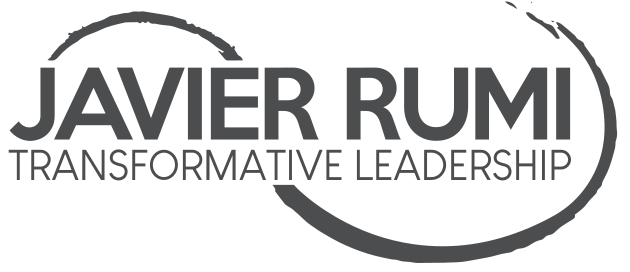WHAT IS WILLPOWER
Willpower is the preference for a larger, delayed reward over a smaller and immediate prize. It happens when we can sustain decisions to wait for a greater reward rather than quickly taking a more satisfying outcome right now. It is closely related to Delayed Gratification (DG).
What is Delayed Gratification (DG), then:
DG is the ‘device’ that gives you the ability to override or change inner responses, desires, or urges. In this way, we can advance the distal long term goal over the shorter (immediate) gratification. DG predicts in kids several positive outcomes during their adulthood: as having better Gmat scores and academic performances, to less criminal offenses. Also, less divorce rate, having more friends, and even lower blood pressure and stress levels. There’s no doubt that DG is an excellent asset to have. It will enhance our willpower.
WHY IS WILLPOWER IMPORTANT
Throughout lots of research to discover what correlates with fulfillment, happiness, and overall success in life, willpower correlates strongly with all of them. Those who succeed and are happy have loads of willpower. However, there are many other elements that also correlate with ‘success in life’: intellectual IQ, upbringing, cultural cues (rich dad, poor dad concept), education, and creativity. There seem to be various ways of accessing doing what we truly desire in life.
Here it is an important point: All of those factors (IQ, education, culture) are Hard to change except for willpower. It turns out that willpower is the easiest to develop, grow, and put to productive use. Probably in a counterintuitive way, it is easier to tweak your willpower than it is to change your mindset. That’s why willpower is so important.
Going even further, willpower is not only essential and necessary, is it now more important than it has ever been. We are in this cohort of humans experiencing longer life spans than ever before; we will all need to support older adults for longer, and we’ll need to be ready to be old ourselves for longer and probably without guaranteed pensions. It is now the moment in history when it is easier to access unhealthy food, it is harder to stay fit due to life-work styles, and it is harder than ever to stay focus. Furthermore, it is easier to access to addictive substances and addictive processes and habits. Willpower turns out to be great to thrive in this cohort of people (and avoiding sinking in the process)
WHAT DO I NEED TO KNOW ABOUT WILLPOWER
Delaying gratification may be an unwise choice. Postponing satisfaction is not always right or brings positive outcomes. It is ‘being able to do it when I choose to” where the value is. Willpower enables you to CHOOSE and sustain the choice of longer-term goals, skipping immediate gratification. We don’t need to delay everything, nor all the time. We need to be able to do so when that is to our advantage.
Delaying gratification, as the effortful inhibition of an urge is not the only way to succeed at goals and shouldn’t be the only tool to use.
DG is a trait we are born with, and also we have a nurturing capacity over it: we can influence and develop it as a muscle. The same Mischel (father of the famous marshmallow experiment) agrees that the ability to delay immediate gratification for the sake of future consequences is an acquirable cognitive skill.
WHAT SHOULD I DO? HOW CAN I POSITIVELY USE MY WILLPOWER
There are two ways by which we can increase our willpower: helping our willpower out! and increasing our capacity to delay gratification. Let’s, for now, focus on how to help my will power out.
Taking as the definition for willpower: “The process by which people advance, abstract and distal goals over concrete and proximal stimuli.” being a process, we can:
- Focus on the enjoyment, not the effort. Before, during, and even after engaging in an activity that we ‘don’t feel like doing’, the simple effort to find a pinch of enjoying it, can dramatically reduce our perception of the effort required to do it. There is nothing fancy or unknown here: finding nicer music to listen to while running, going to work knowing I’ll have a nice lunch break with colleagues-friends. Writing that report or presentation with a nice drink, cool music, and in an inspiring place… all HELPS to perceive the task with more Intrinsic motivation. This works, however, common sense doesn’t mean common practice 🙂
- Routinize the process. Attach the behavior (action) you want to do of, to a process, or an event that is already working. IN this way you can rely on the routine’s inertia to patch up your lack of motivation-moments. For example, answering emails (an action we want to routinize) while enjoying my coffee and knowing that right after that, you’ll take your morning break. One of my current favorites, to have more meditation moments through the days is, every day, at the end of my working day; I do gardening (ending working day+gardening is a guarantee that happens). During my gardening, I do my meditation (that I’d failed to do otherwise consistently). With little fun and creativity, there is almost anything (unpleasant) that could be tossed in.
- Self Binding actions. First, know how you fail; for example, I don’t write my paper as I get distracted by reading news online or check online shopping or social media. One self-binding’ could be blocking sites. Or sitting in a position in which everyone at work would see your screen. The self-binding name comes from Ulysses, who binds himself Knowing that he would fall to the call of the Sirens (post picture). What can you bind yourself to don’t fall into the temptation?
- Avoid temptations. “If you don’t have the bottle of wine on the table, you can’t drink it”. Or if there is no junk food in your fridge, you can’t eat it. Pretty straightforward: use your willpower Not to overcome the temptation But to Avoid it in the first place Before IS a temptation.
- Distracting. Drive a different route to don’t pass in front of the liquor store. Engage or go places that will oblige you to do the behavior you want to practice. As the saying goes: Get in a group where your Target Behavior IS the norm.
Few Take-Aways:
Having the capacity to use your willpower and delay gratification will allow you to do what you say you truly want to do.
- The global shortage of skills for delaying gratification has contributed to creating epidemic levels of obesity, high levels of distraction, drug, alcohol use, and stress.
- Any positive action you can do to succeed in your goals is allowed and valid. Use your resources. Do not trivialize any tool because you already know it, or is not the ‘real thing’ (as watching tv while on the treadmill).
- Using your willpower takes a significant effort and results in energy depletion. Pay attention to the process. It is simple and Not easy:
First, understand your desires and urges. Then, develop strategies to help your willpower out.
- Any skills of a high performer or “successful person” is accessible to everyone who desires to improve; may not be easy, but it is possible



Recent Comments